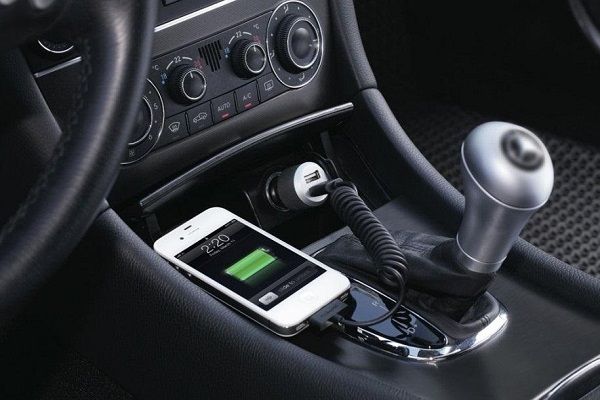Whether you’re on a long road trip or stuck in traffic on your normal commute, a low iPhone battery could spell trouble for a bored driver. At first glance, connecting your phone to the USB port in your automobile appears harmless. Charging your iPhone during your journey, though, may not be a good idea unless you’re in a rush.
Your phone is at risk when you charge it in your car. A cigarette lighter, which provides 12V, is the most popular technique. “When charging a smartphone, the adapter can usually safely adjust the voltage,” said Joshua Sutton, manager of the uBreakiFix Training Department.
“However, if the adapter is faulty or was not built by the phone’s maker, it may send too much power to your phone, potentially harming it.” Because it normally affects your phone’s battery first, decreasing its health, you may not notice this effect straight away.”
Even if you don’t realize your phone has been damaged, it could cost you a lot of money in the long run. “The worst-case scenario is that it ruins your phone’s charge port or the motherboard itself,” Sutton adds. “A good rule of thumb is to use your phone’s certified car charger to provide the best possible quality and power control.”
It’s a good idea to conduct some study on your car and the cords you’re utilizing. Sutton suggests investing in a Pure Sine Wave Power Inverter if you’re still concerned about power output. Sutton explains, “It can detect any fast variations in power output from the car’s power outlet (or cigarette lighter) and safely restrict the power your smartphone receives.” “They’re a little bigger than standard car chargers, but they’re a lot safer.” It also has the advantage of having built-in AC power outlets for charging laptops.”

 Latest4 days ago
Latest4 days ago
 Trends5 days ago
Trends5 days ago
 Business7 days ago
Business7 days ago
 Health6 days ago
Health6 days ago
 Football7 days ago
Football7 days ago
 Featured7 days ago
Featured7 days ago
 Football6 days ago
Football6 days ago
 Business7 days ago
Business7 days ago

